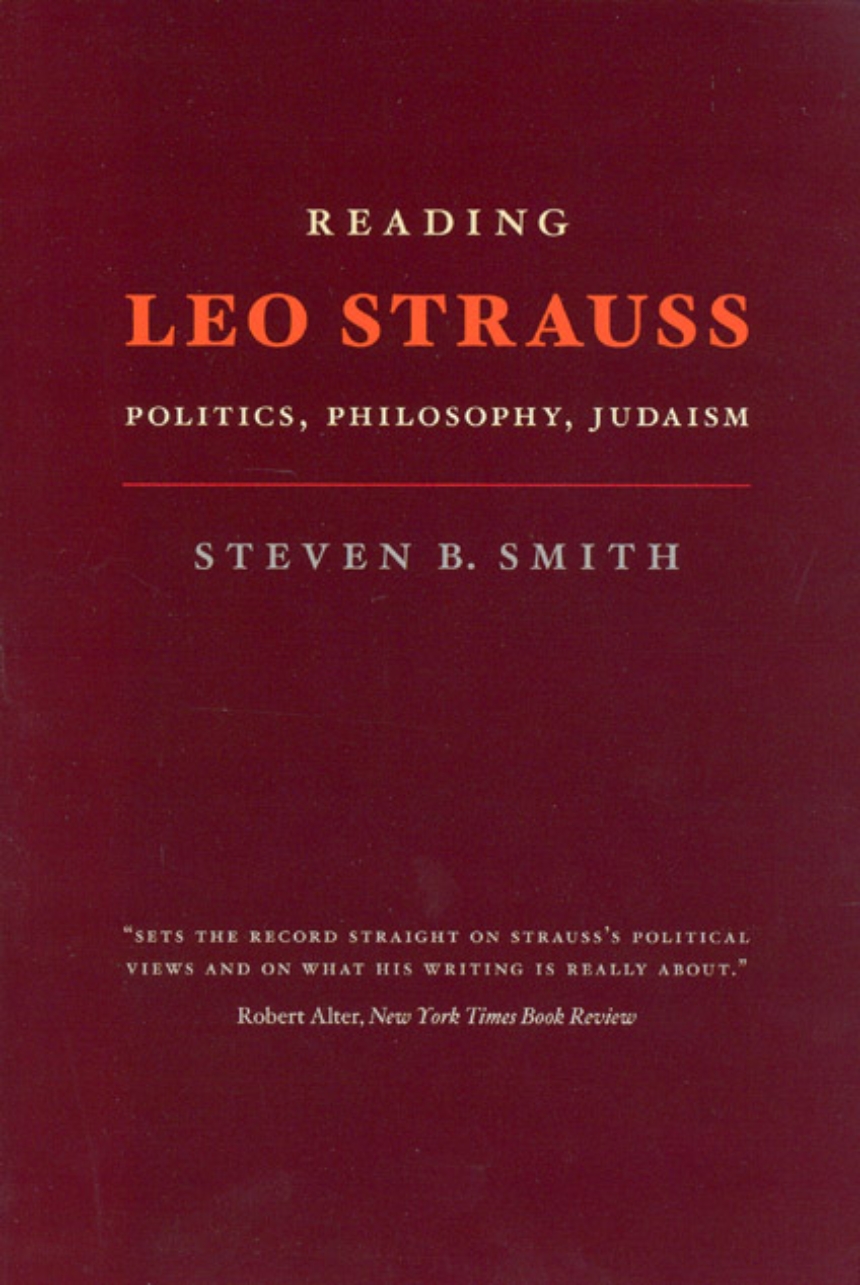Reading Leo Strauss
Politics, Philosophy, Judaism
Interest in Leo Strauss is greater now than at any time since his death, mostly because of the purported link between his thought and the political movement known as neoconservatism. Steven B. Smith, though, surprisingly depicts Strauss not as the high priest of neoconservatism but as a friend of liberal democracy—perhaps the best defender democracy has ever had. Moreover, in Reading Leo Strauss, Smith shows that Strauss’s defense of liberal democracy was closely connected to his skepticism of both the extreme Left and extreme Right.
Smith asserts that this philosophical skepticism defined Strauss’s thought. It was as a skeptic, Smith argues, that Strauss considered the seemingly irreconcilable conflict between reason and revelation—a conflict Strauss dubbed the “theologico-political problem.” Calling this problem “the theme of my investigations,” Strauss asked the same fundamental question throughout his life: what is the relation of the political order to revelation in general and Judaism in particular? Smith organizes his book with this question, first addressing Strauss’s views on religion and then examining his thought on philosophical and political issues.
In his investigation of these philosophical and political issues, Smith assesses Strauss’s attempt to direct the teaching of political science away from the examination of mass behavior and interest group politics and toward the study of the philosophical principles on which politics are based. With his provocative, lucid essays, Smith goes a long way toward establishing a distinctive form of Straussian liberalism.
Smith asserts that this philosophical skepticism defined Strauss’s thought. It was as a skeptic, Smith argues, that Strauss considered the seemingly irreconcilable conflict between reason and revelation—a conflict Strauss dubbed the “theologico-political problem.” Calling this problem “the theme of my investigations,” Strauss asked the same fundamental question throughout his life: what is the relation of the political order to revelation in general and Judaism in particular? Smith organizes his book with this question, first addressing Strauss’s views on religion and then examining his thought on philosophical and political issues.
In his investigation of these philosophical and political issues, Smith assesses Strauss’s attempt to direct the teaching of political science away from the examination of mass behavior and interest group politics and toward the study of the philosophical principles on which politics are based. With his provocative, lucid essays, Smith goes a long way toward establishing a distinctive form of Straussian liberalism.
Read an excerpt.
268 pages | 6 x 9 | © 2006
Philosophy: General Philosophy
Political Science: Political and Social Theory
Table of Contents
Preface
Introduction: Why Strauss, Why Now?
Introduction: Why Strauss, Why Now?
Part One: Jerusalem
1. How Jewish Was Leo Strauss?
2. Gershom Scholem and Leo Strauss: Notes toward a German-Jewish Dialogue
3. Strauss’s Spinoza
Part Two: Athens
4. Leo Strauss’s Platonic Liberalism
Part Two: Athens
4. Leo Strauss’s Platonic Liberalism
5. Destruktion or Recovery?
6. Tyranny Ancient and Modern
7. Strauss’s America
8. WWLSD; or, What Would Leo Strauss Do?
Notes
Index
Index
